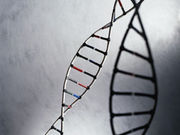Lower levels of 8-hydroxydeoxyguanosine noted in the urine of those who worked at night
TUESDAY, June 27, 2017 (HealthDay News) — Capacity to repair everyday damage to cell DNA could be impaired in people who work the night shift, which may be due to melatonin suppression, according to a study published online June 26 in Occupational & Environmental Medicine.
Parveen Bhatti, Ph.D., of the Fred Hutchinson Cancer Research Center in Seattle, and colleagues built on earlier research of 223 shift workers. There, the researchers found that workers’ 8-hydroxydeoxyguanosine (8-OH-dG) levels were lower during day sleep, versus night sleep. The researchers also saw evidence that lower melatonin levels correlated with lower 8-OH-dG. The 50 workers in the latest study were those who’d shown the biggest drop in melatonin during night work versus night sleep.
In the new study, the research team found that levels of 8-OH-dG during night work were 20 percent of those observed during night sleep. Circulating melatonin levels were also lower during night work versus night sleep.
“This study suggests that night work, relative to night sleep, is associated with reduced repair of 8-OH-dG lesions in DNA and that the effect is likely driven by melatonin suppression occurring during night work relative to night sleep,” the authors write. “If confirmed, future studies should evaluate melatonin supplementation as a means to restore oxidative DNA damage repair capacity among shift workers.”
Copyright © 2017 HealthDay. All rights reserved.








